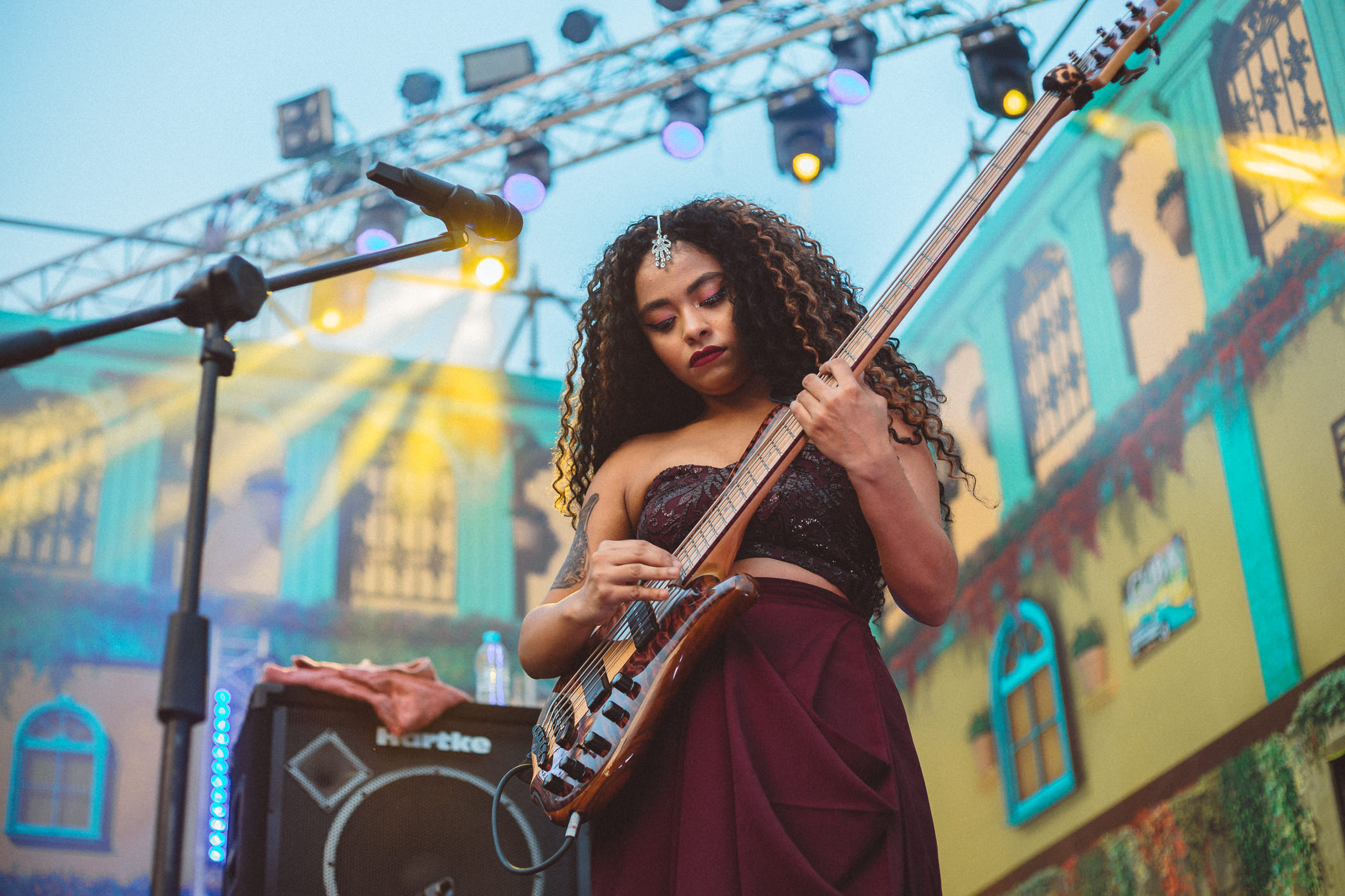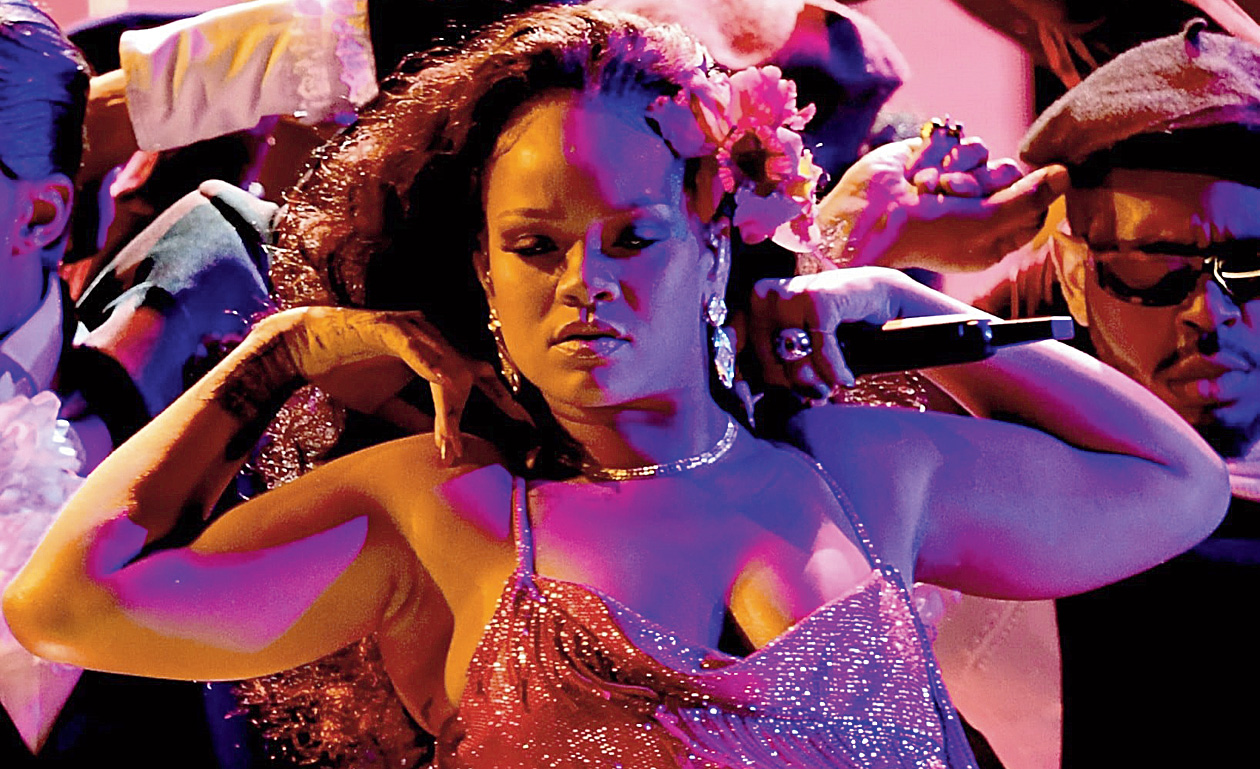Over the past 12 years, how has your relationship with the bass guitar changed?
It was always my toy. It’s still my toy. Nothing has changed. The amount of interest has definitely grown. I have evolved as a musician. Growing up, my father would remind me when it was time to practice. After a certain point of time, parents don’t tell you what to do. Now I know what my responsibilities are. At 12, I was just having fun. Now, it’s a lot of responsibility and, at the same time, a lot of fun.
What is it working with A R Rahman?
He is so easy to work with because we both can read each other’s minds. So I don’t have to tell him much. I just give him options and he then picks one and says that’s what he wants. The more you work in the industry, the more well-equipped you become in delivering what the music director wants. When I started working with him, I was smart enough to know what he wanted and I gave him that and he was really happy. He liked the style, the attitude, and perhaps the fact that I was not star-struck. I would talk to him like I would talk to any other musician. That’s how I am. I believe we are both serving each other’s style and music, and we are connected as a family. Eventually, I joined his band and recorded for his soundtracks. It’s been nearly eight years since I began working with him as a 15-year-old. It’s been quite a journey.
What is the one personal trait that worked best for you?
I am not monotonous and I am not repetitive. I always try to deliver something different with every artiste I work with. I get a lot of project offers from all around. But I choose a project because I enjoy the music. I don’t do this for money. I do it out of love. I wanted to enjoy my work which is why I chose music. It’s like a game for me. It’s challenging and I enjoy it. Lastly, I always try to keep myself updated, with both technology and music. If you don’t, you will be left behind because the world is moving so fast. The moment you stutter or lag, there are millions waiting to take your place.
Year 2019 has just begun and bass phenomenon Mohini Dey is already headed to the Far East for yet another musical adventure. The 22-year-old is on a four-month tour with the legendary Japanese rock band, B’z (pronounced Beez). Last month, she was a runaway hit at the Nh7 Weekender in Pune. Exactly a year ago Dey was busting fast, funky, fat notes at the Bass Bash in California with top bassists Abraham Laboriel and John Patitucci.
The laundry list of her collaborations include the who’s who in world music; guitar guru Steve Vai, genius drummer Marco Minnemann, Dream Theater keyboardist Jordan Rudess. A R Rahman, who she has worked with since she was 15, is her fan.
Mumbai-based Dey is not just India’s youngest female bass guitarist, she is also the busiest. “If you want me to come by and help finish your record ASAP, then I am not the one,” she says, mentally thumbing through her work calendar inundated with studio fixtures and live gigs. “I am fully booked until at least the middle of this year.”
You are known for your technical proficiency. How important is it to keep advancing on that front?
I don’t look at it that way. I know how flashy it might all appear on YouTube and social media when I am bursting into elaborate improvisations. But if you watch me performing with A R Rahman, I am just grooving throughout the whole show, without drifting into any technical bits. So it depends on what is required of you. But then, today, everybody wants more views and subscribers for their channels and accounts, and I play according to the show, the setting, the artistes I’m collaborating with. When I race my fingers all over the fretboard, it’s a bit of a gimmick. The audience, the viewers, they love it. I understand why. If I play the same phrase for 15 bars, it’s bound to get boring. So I must infuse some technical nuance from time to time.
The prodigy, who began taking bass guitar lessons at six and performing on stage at 10, hasn’t let time blunt the edge of her fascination for the instrument. Dey’s musical expedition is ever-evolving, assimilating the new, reinvigorating the old. It began with a three-year-old patting the floor to her bassist father Sujoy Dey pulling beeps and bops on the strings. It grew up absorbing a staple of jazz fusion and classical singer mother Romia’s Indian playlist. It went on experimenting with and mastering genres ranging from funk, blues, rock, jazz, Indian classical, fusion, you name it.
Today, Dey’s bass playing is armed to its tonal teeth and has made the finest of world’s musicians take notice. We caught up with her in the middle of her busy schedule. Excerpts from an interview.
How did your influences shape your musicianship?
The kind of music you grew up listening to will get stored in your system. I say that from experience. If you grew up listening to Chick Corea Elektric Band or A R Rahman, you will hum that music throughout your life because you enjoyed it when you were young. Whatever music you will be exposed to and thus absorb when young, that music will be classic, imprinted deep into your subconscious. The same way, I have a sprawling library of so much music inside me and a mash of so many genres and cultures from all the countries I visited and the people I met, that everything adds up in its own interesting way and enhances my sound, style and attitude. When I am playing, I am naughty. I am not serious. But I am also having a conversation. I believe you, as a person, are seen through your music.
How much of the live music you perform with other artistes is centered around your part?
Everything is centered around bass. What does the word bass mean? It’s the base of everything, the groundwork, its low frequency gives the track the body. Even if there’s no bass in a song, I am already playing the bassline in my head. The music one has grown up listening to throws open many ideas and possibilities. Since I studied music and have had 13 years of experience working in the industry, I have learnt a lot.











